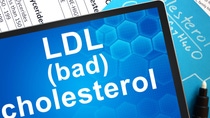Getting to the heart of the matter

By Dr. Kai Lin Ek, Regional Manager, Scientific Marketing, BASF Asia Pacific
A growth in sedentary lifestyles and high-fat diets has seen incidences of cardiovascular disease (CVD) increase. As a result, on average, someone now dies every 12 minutes in Australia from CVD1. Taking a proactive stance against this and choosing food products fortified with plant sterols can significantly reduce the threat of heart disease, particularly for those most at risk. Fortified everyday staples like milk, yogurt and spreads are some functional foods that are now widely available, and could be easily worked into a nutritional plan.
First, the Bad News
Despite all the medical advancement of this age, the magnitude of cardiovascular diseases (CVD) continues to accelerate and is the leading cause of death worldwide. Cardiovascular disease is a general term for a disease of the heart or blood vessels, and according to reports from the World Health Organisation (WHO), is responsible for over 31% of total deaths in 2012 which equates to 17.5 million deaths. In Asia Pacific, the numbers are alarming; in China, CVDs account for 45% of total deaths, in India 26%, in Indonesia 37% and 31% in Australia.
However, though heart disease may be the leading cause of death, it does not mean you have to accept it as your fate – that is, if you take good care of yourself and manage the risk factors associated with this disease. Of the many risk factors for CVD, the 2016 European Guidelines on CVD prevention listed the lowering of LDL-cholesterol (low density lipoprotein cholesterol) otherwise known as “bad cholesterol” a class 1 rating for being effective in the reduction of CVD risk.
Enter the Dietary Portfolio Approach
In a series of studies, researchers from the University of Toronto showed that if one was already on a low saturated fat, low cholesterol diet, one could get an even larger decrease in blood cholesterol levels by adding a “portfolio” of specific foods. These foods included plant sterols, soluble fibres, soy protein and nuts. After four weeks of adding these foods, there was considerable reduction in “bad” or LDL cholesterol of around 30 per cent, on par with a reduction expected from a cholesterol-lowering statin drug. In subsequent and larger studies, researchers showed that this dietary pattern could be sustained over a longer period of time of a year and as an added benefit, the portfolio approach also lowered blood pressure and did not depress the level of beneficial HDL (high density lipoprotein) cholesterol.
For greater clarity, the researchers also looked into the contributions of the individual components. Participants followed the portfolio approach over 80 weeks including all four components. At week 52-62 plant sterol was removed and they observed that the mean LDL cholesterol reduction was only 9% compared to a mean LDL cholesterol reduction of 15% on the full diet. This indicated that plant sterols alone accounted for more than one third of the LDL reduction in the portfolio diet.
The Rundown on Plant Sterols
Plant sterols are a group of natural, bioactive plant compounds with steroid structures similar to cholesterol. Like how cholesterol is an important compound in cell membranes in humans and animals, plant sterols play important structural roles in plant membranes and can be found abundantly in seeds and oils derived from them.
Cholesterol in the blood comes from two main sources: the liver synthesises around 70% of this in which the cholesterol is released with the bile and 30% is derived from the diet, mainly from animal products. The cholesterol from both sources arrive at the gut and as plant sterols have similar chemical structures to cholesterol, they are able to compete with cholesterol for absorption, reducing cholesterol reabsorption and in turn lowering blood cholesterol levels. In general, the intake of naturally occurring plant sterols from the diet is about 160–400 milligrams/day. This amount is not quite enough to achieve the cholesterol lowering benefits that plant sterols confer. When the results of more than a hundred randomised clinical trials on plant sterols were summarised it was clearly established that a daily intake of 1.5-3.0 grams of plant sterols can reduce LDL cholesterol by 7-12.5%, significant for reducing CVD risk.
Recommendations for a Healthy Heart
There is a high level of evidence for the use of plant sterols in reducing CVD risk and are among the very few food ingredients for which health claims referring to the reduction of disease risk have been permitted, for example in the EU, the US and in Asia Pacific, namely Japan, China, Singapore and Australia.
Therefore, plant sterols can be considered for the reduction of LDL cholesterol if one’s cholesterol is only mildly elevated or if one is at intermediate to high risk who do not wish to use, or cannot tolerate, other cholesterol-lowering medications. In addition, plant sterols can be also be used in combination with statins for additional reduction of LDL cholesterol.
BASF has a range of plant sterols as part of our human nutrition portfolio, for more information visit http://www.newtrition.basf.com
1 https://www.heartfoundation.org.au/about-us/what-we-do/heart-disease-in-australia